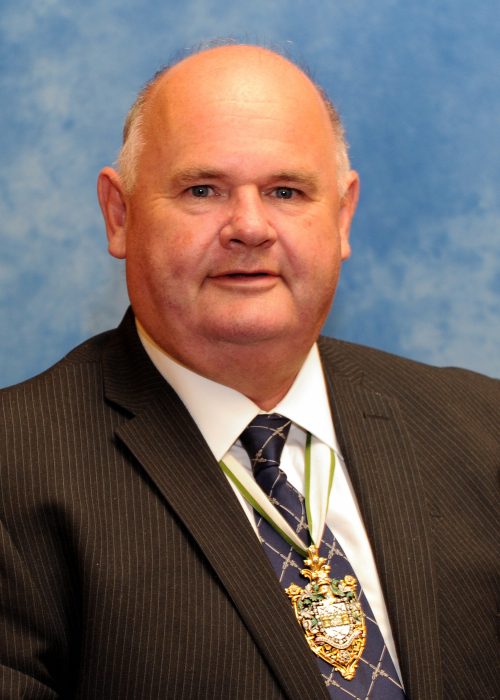Four priorities set out by new Master Cutler

The 380th Master Cutler of Sheffield was installed in a ceremony yesterday and says he will focus on four challenges and opportunities during his year in post – Brexit, devolution, productivity and skills/education requirements.
Nicholas Cragg, a native of Hull, always had the ambition to study engineering and so began his career with British Steel, as a student apprentice. On graduating from Lougborough University, he spent over 25 years in the steel industry with a career progressing through to a number of business leadership positions based in the UK and subsidiary board appointments overseas. It was the steel industry
which first brought him to South Yorkshire.
On leaving the steel industry, Cragg started his own company supporting clients in the oil and gas sector in the US and UK before joining a producer of flexible pipelines and worked between the UK and Brazil.
He became a Freeman of the Cutlers Company in 2002 and, in 2004, became a Member. As Master, in addition to representing the Company, he is passionate about raising the business profile of the Region especially for the benefit of existing manufacturers, as well as for attracting new inward investors.
Cragg believes that improving the education outcomes of young people will help them exceed their ambitions and, in so doing, will retain their skills to support the current and future manufacturers in the region.
He said Brexit, devolution, productivity, skills and education requirements presented four challenges and opportunities during the next 12 months. He takes the historic role from his predecessor Ken Cooke.
Cragg said: “Clearly, the government must deliver a solution to Brexit that is good for business, has clarity, allows for growth and instils confidence for sustained investment. The uncertainty over tariffs and cross border trade arrangements needs to be resolved. Business, large and small, do not like uncertainty which has an adverse impact upon manufacturing, investment and order books.
“All Brexit negotiations must ensure business retain the ability to compete effectively in the EU marketplace without additional barriers to cost, technical regulation and lead time.”
Devolution is another area of uncertainty which requires resolution, he added. ” The need for strong regional leadership forms a significant part of delivering an equally strong industrial strategy. We need to see some significant progress to delivering meaningful devolved governance to enable lasting benefits for the 1.8m people who live, work and play in our region. We need to ensure that we are not left behind.”
He continued: “Productivity is my third area of concern. No other advanced economy has such regional variations in productivity as seen in the UK between the North and the South. The Government has published its industrial strategy white paper which includes the establishment of an independent Industrial, Strategy Council. I look forward to seeing its charter and its metrics for success. We have many world class companies in our region. For them to compete on a level playing field we need the Government to strengthen its own procurement guidelines.”
He said his final focus – education – were a particular challenge for the region, as average earnings are below those of comparable regions in the UK. “But this is an area of concern which we, along with partners, have taken upon ourselves to tackle through our Better Learners, Better Workers scheme which helps young people develop the knowledge, skills and behaviours to enable them to succeed in the workplace. Like my predecessors, I shall make this a focus of the year ahead. We must not let down our younger generation – we must give them the openings that we have had but which many have been denied through lack of ambition or opportunity.”
The Master Cutler’s Challenge this coming year will support St Luke’s and Rotherham Hospices with particular emphasis on their outreach programmes in the communities.







